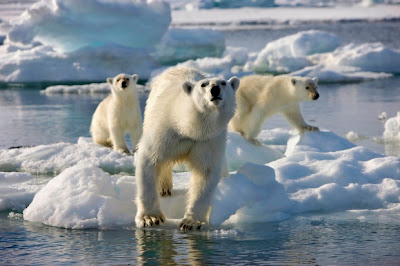It sounds as though both practices have to exist. However, when ranches contain endangered species that protects them, caution has to be influential. Caution that both dictates their health, but, also to prevent 'genetic stranding.' I would hope the ranch owners are working with each other to insure there is plenty of breeding opportunity between herds to strengthen the diversity of the breeds.
The larger question is, of course, how is restoration in Africa going so the species are thriving there.
Is is sad to realize a species is not appreciated for the sole purpose of its survival and an economic dictate has to accompany them to create a viable climate for their existence. It speaks to our society and what we sincerely value and in 'what context' we value it. In this case, animals 'have their place.' It is lucky they are difficult to hunt, otherwise they wouldn't be valued either.
My curiosity is, do these ranches seek to preserve endangered and threatened species outside of those they profit from?
Most conservationists know hunting is a way of culling a population that preserves its habitat and therefore, the species.
It sounds as though there are moral issues with the conservation of these species, it might have to be looked at in a light that would include professionals monitoring the species and the breeding practices as well as the expediency of repopulating Africa.
Zoos do the same thing, but, in a more protective methodology. So, the idea this is a matter of private property rights is incorrect. "Living equity" is different than real estate borders. These are exotic and rare animals. There are real problems with exotics in the USA. Usually it is just the predators, but, grazing and competition exists. They can't simply be euthanized either if they become unprofitable.
The owners of the ranches were given permission for their activities through the federal system, they opened themselves to that regulation and they need to accept decisions in the light they proceed. They liked the decisions originally, but, now it is a matter of property rights. I don't think so, but, reasoning with the Interior Department and those seeking to restore populations in Africa might be a better venue.
...Their very existence in Texas depends (click title to entry - thank you) on a tension between survival and death. To protect these species, ranchers argue, we must kill them.
The exotic-ranch owners are in a furious fight with the U.S. Fish and Wildlife Service -- and animal rights groups -- because, starting Wednesday, they will have to get permits for the three species of antelopes.
The animals are magnificent: limber, with large, almost undulating horns, different on each species. There's the scimitar-horned oryx, the addax and the dama gazelle, whose horns have a gentle, rising S-curve.
They're nearly extinct in their native habitats. But because of an unusual exemption under the U.S. Endangered Species Act, these animals are thriving, their populations reaching the thousands by being hunted legally on sprawling ranches in the United States. Texas has more than 5,000 such ranches, mostly in the Hill Country.
Alongside the antelopes are exotic animals of every stripe, including zebras, African bongos, kangaroos and regal rare Pere David's deer, which are extinct in the wild....

















